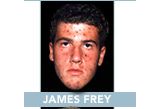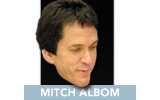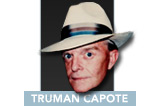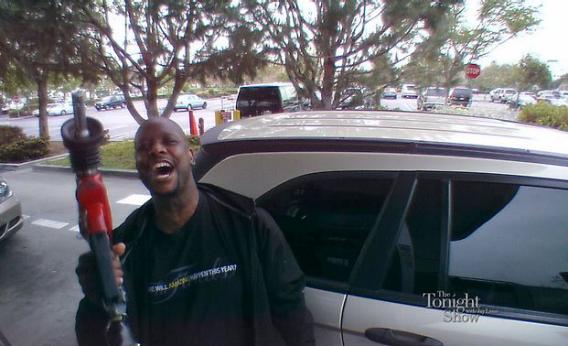How Much Lying Is OK on Late Night?
Last week, an installment of the occasional Tonight Show segment “Pumpcast News” went viral on YouTube. In the bit, a fake newscaster appears on a video screen installed above a gas pump, then starts speaking directly to a gas station customer. In this particular installment, the customer is surprisingly game to sing for free gas, and busts out a more than passable “Livin’ on a Prayer,” honed, he says, by many nights of karaoke. His wife stays in the car, seemingly embarrassed. But then she’s coaxed out as well, and launches into a very tuneful rendition of “Sweet Dreams (Are Made of This),” with the husband harmonizing.
Leno liked them so much he had them on the show and they sat in with the band.
But The Smoking Gun has revealed that the couple, Will and Monifa Sims—identified on The Tonight Show as a bartender and a fitness instructor, respectively—are trained actors who moved to L.A. to get into show business, and that Monifa has been on a “Pumpcast News” segment before. After The Smoking Gun posted its discovery, someone at the site spoke to Monifa Sims, who said that “it was just a fluke,” adding, “When it happened again, I said ‘I cannot believe it!’ ”
Many others cannot believe it either. Gawker picked up the Smoking Gun story and connected it to their own slightly facetious exposé from last week, about the apparent fakery in Jimmy Kimmel’s very popular “Celebrities Read Mean Tweets” segments. Several of the tweets appear to have been written by the show for the express purpose of using them for the bit, though there is no definitive proof of this.
And there’s no proof that the Sims’ appearance on “Pumpcast News” was planned. But we already know from an interview in the Sun-Times that the show chose to identify the couple by their occasional day jobs—rather than as the actors they are—because, as Will says, the producers “didn’t want [people] to think we were actors and it was a ‘plant.’” Similarly, Monifa told The Smoking Gun that her previous appearance on “Pumpcast News” was not mentioned because the producers “don’t want people to think that they planned this thing.” “We have been honest with them the whole time,” she added.
Even assuming that this is the whole story, is such fakery OK? A year ago, after Mike Daisey’s fabrications in a This American Life story about Apple factories in China came to light, we examined how much lying people are generally willing to accept from various kinds of storytellers. (See the resulting infographic below.) Two things we learned would seem to apply here. First, when humor’s involved, people grant a lot more latitude. David Foster Wallace’s unacknowledged use of composite characters in his very funny pieces for Harper’s and elsewhere disappointed some people, but it has not really besmirched his reputation. David Sedaris fictionalizes his “nonfiction” considerably, and yet when this is pointed out, most people shrug.
The second relevant lesson is that people seem to hold writing to a higher standard than storytelling on screen or on a stage. Comedians say that things happened to them just the other day that have never happened to anyone on any day. Nobody minds. Movies can depart from true stories extensively without raising too many eyebrows.
So if Monifa Sims’ account of what happened is accurate, this is probably where the story ends. If there’s more to it, maybe the Tonight Show will apologize for misleading people, but I suspect that even then no one would be fired. Of course, it does make the video a little less fun to watch—and there’s a separate lesson there. Leno’s Tonight Show has always relied considerably on “found” humor: stupid headlines, man-on-the-street interviews, and so on. Kimmel’s dipped into this well quite a bit, too. These things are often funny only because they are, supposedly, true.
It’s more impressive—and more satisfying, if you ask me—when comedians and humor writers are capable of being funny without the crutch of this-really-happened-ness. (Conan’s fake headlines were nearly always funnier than Leno’s real ones.) It’s one of the reasons I’m hoping Fallon steers clear of this sort of material when he takes over The Tonight Show next year.
 |
|
|
|
|
 |
|
 |
|
 |
|
 |
|
 |
|
 |
|
 |
|
 |
|
 |
|
 |
|
 |
|
 |
|
 |
|
 |
|
 |


